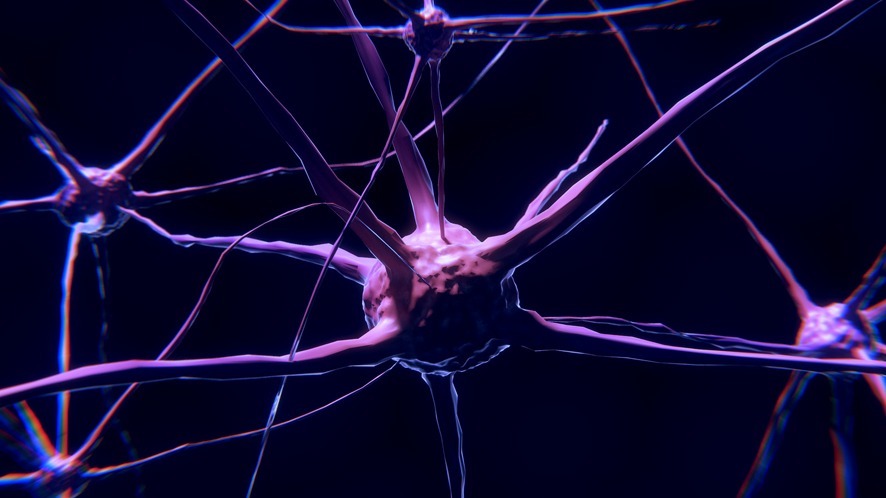Overview
Introduction
Recently, many people have told me they feel increasingly lonely. In these conversations, the impact of the digital age often comes up. What’s concerning is that many of these changes are no longer discussed, acknowledged, or integrated. What seemed unusual just yesterday has now become the new normal. Has anything really changed?
While some people struggle with growing loneliness and disconnection due to shifts in how we interact, others try to escape their loneliness by escaping in use of digital media. They might not even realize how truly lonely they are. It’s a vicious cycle.
This post isn’t about judging the changes or being overly negative. Instead, it aims to make these shifts more visible and to encourage those who feel lonely to reach out and connect with others. You are not alone!
It’s also an invitation to take a step back and make more conscious choices about how we connect with each other. How much attention and respect do we want to offer each other in these moments? Let’s put our smartphones aside and give each other our full attention. We all need this!
Loneliness in the digital age | Changes
In the digital age, we are witnessing a profound shift in how people interact with each other. Social media and digital technologies may connect us, but at the same time, they often isolate us.
According to a survey by the American Psychological Association (from 2020), over 61% of young adults in the U.S. report experiencing feelings of loneliness. This figure has increased significantly over the past decade, reflecting the growing reliance on digital interactions and the resulting impact on emotional well-being.
While digital platforms offer a way to communicate, they often fail to meet our fundamental human need for genuine closeness and connection. The overuse of these technologies can contribute to a sense of emotional disconnection, despite the illusion of being socially engaged.
In this article, I invite you to reflect and take an honest look at these changes. Together, we will explore how our social interactions have evolved, the effects on human qualities and social skills, and how we might use digital media more mindfully to prevent a growing culture of loneliness.
Changes in social interaction
The rise of digitalization and social media has drastically altered the quality of interpersonal relationships. Research shows that people today engage in fewer face-to-face interactions compared to just a few decades ago.
According to a statistical survey, teens aged 12-18 spend an average of more than seven hours per day in front of screens. This leaves little time for direct, in-person social contact. These findings are from 2021, and with the increasing use of tablets in schools, this trend is likely to have continued growing in recent years.
This increased digital presence leads to a habitual reliance on a form of interaction that lacks many key human attributes found in real-life social connections. A significant portion of nonverbal communication is lost: facial expressions, gestures, and body language are absent. As a result, the ability to perceive, process, and communicate nonverbally is not being learned, practiced, or developed. It’s likely that our sensitivity and attunement to subtle social cues are diminishing because the opportunity to practice these skills is lacking.
When we notice this in our interactions with others, it can feel lonely—because the “finer” aspects of connection are missing.
Decline of interpersonal qualities & skills
Excessive use of digital and social media can lead to the erosion of essential human qualities such as empathy, active listening, and the ability to resolve conflicts. A comprehensive meta-analysis spanning the years 1979-2009 revealed that heavy social media use among college students resulted in a significant decline in empathy and a distorted perception of others. And this study was conducted over a decade ago, in 2011!
The focus on digital interactions contributes to a noticeable reduction in empathy and increasingly alters our ability to perceive others accurately. As face-to-face, personal interactions decline and the option to retreat into the digital sphere becomes more common, we are missing out on in-person experiences where we can develop sensitivity and hone our skills in resolving real conflicts. This might also help explain why so many people today feel overwhelmed and stressed. For further insights, see 6 Steps to Overcoming Stress and Estrangement.
Are we losing the ability to connect with one another? Are the tools of human interaction fading away?
Social development & Emotional regulation in young people
Adolescents who engage heavily with digital media often struggle to develop core social skills and effective emotional regulation. A study by Romer, D., Bagot, K., & Struik, L. L. (2020) found that excessive screen media use is linked to lower psychological well-being, with severe cases (e.g., bullying or cyberbullying) even associated with suicidal tendencies. The findings also suggest that increased screen time is correlated with deficits in social skills and impaired emotional regulation among children and adolescents.
These results highlight that real, face-to-face interactions are essential for developing social competencies and learning how to manage one’s emotions. We are talking about skills that are crucial for healthy development and overall well-being.
Neurosynaptic changes | Brain development
The impact of intensive media use (including online gaming) during adolescence on altered brain development has been documented in several studies. The development of brain structures in young people continues at least until age 18, making this a critical period where external influences can have lasting effects. However, findings on the effects of digital media remain mixed. A review article from 2019 concluded that the varied outcomes of different studies show significant discrepancies, highlighting the need for further research.
There is now widespread acknowledgment that digital media exposure influences neurosynaptic development. This has been observed particularly in brain regions associated with attention, emotional regulation, and impulse control.
Our digital evolution is therefore directly shaping the neural development of future generations. As caregivers and society, we bear the responsibility to create environments where children can learn safely, protecting them from potential risks they are not yet capable of managing on their own.
Digital media dependency | Behavioral changes
The use of digital media, particularly social platforms, carries addictive components that primarily affect young people. In the book Psychology of Substance Abuse, an entire chapter is dedicated to digital media addiction. According to “New Forms of Addictions: Digital Media” by Reichert et al. (2021), digital addiction is classified as a “non-substance-related addiction” based on APA criteria. Yet, addiction is still addiction, regardless of the substance or medium.
The chapter explains how the mechanisms of social media—such as likes, notifications, and reward systems—create dependency. Similar neural pathways are activated as seen in substance abuse disorders. Over time, the usage becomes increasingly compulsive, influencing behavior by diminishing attention span and reducing the desire for genuine social interaction.
If even adults find it difficult to self-regulate their digital consumption, what chance do children and adolescents have?
The common blind spot | Recognition of Digital media dependency
While it feels like almost everyone today is caught up in some form of digital dependency, it’s becoming increasingly difficult to identify and acknowledge this as an addiction—both in ourselves and in others.
Just take a look around you: in the street, at a café, or even among friends. Who still uses their smartphone with full awareness? We all find ourselves needing to constantly monitor and discipline our usage, which is a clear sign of addictive behavior. If we are completely honest, we can feel the pull quite distinctly. Neither technological progress nor its normalization has changed this; in fact, it has only made it worse.
Much like substance-related addictions (such as alcoholism or nicotine dependence), people with digital addictions often seek out like-minded peers who share their habit, thereby reinforcing and “normalizing” the behavior. This is a dynamic we are collectively stuck in, creating a shared, massive blind spot. We tend to downplay the seriousness of digital dependencies and validate each other’s behaviors.
I, too, face my own challenges with this and am acutely aware of the gravitational pull of digital media.
At the same time, it still feels strange to me when people get visibly stressed because they “have to upload their vacation photos to Instagram.” It genuinely saddens me when I see four people sitting together at a table only interacting by showing each other reels and discussing them. Reality has shifted entirely, and it seems there isn’t much happening in their own lives anymore.
When people we care about disappear into digital voids, it can feel profoundly lonely.
Digital communication | avoidance of conflicts & conflict resolution
Engaging in virtual communication often leads to the avoidance of direct confrontation with real-life, often uncomfortable conflicts. At the same time, social inhibitions tend to diminish, as people can hide behind a veil of anonymity. It becomes easier to evade confrontation entirely on digital platforms: one can simply ignore, not respond, or even block someone, effectively silencing them. While this provides a sense of autonomy (we get to choose who we engage with and what topics we want to discuss), it can also result in us crossing lines, forgetting that we are interacting with real people, and ultimately impairing our conflict resolution skills—skills that may either wither away or never fully develop in the first place.
A recent study from 2023 found that increased social media usage is linked to a decline in real-life interpersonal conflict resolution abilities. This suggests that people who primarily communicate through digital means are less capable of resolving conflicts face-to-face, which in turn hinders the development of essential social skills.
Conflicts, and the way we navigate them, allow us to grow and contribute to the development of empathy and self-reflection. Excessive digital communication, however, obstructs this crucial social growth.
When conflicts that are important to resolve are no longer addressed but instead avoided or ignored, it can leave us feeling increasingly isolated and lonely.
Alienation from preconditions of true connection
In conclusion, it is clear that the ongoing digitalization and increased use of social media can lead to a detachment from essential human qualities and skills. Empathy, conflict resolution, consideration, genuine engagement, and social understanding are qualities that gradually diminish over time.
It is no surprise that these developments contribute to loneliness as human beings. There is no substitute for real, face-to-face interactions. Not without paying a high price. We must all—each one of us—be vigilant to ensure that we do not create a culture of isolation, where the fundamental ability to connect gradually fades away across generations.
Unfortunately, the sheer volume of digital distractions makes it less and less likely that we will become aware of our loneliness. As human beings, we tend to avoid unpleasant feelings and avoid confronting ourselves. Whenever something feels “off,” a quick glance at the next Instagram reel can provide a “covering” effect.
As a coach specializing in consciousness and self-liberation, this is something that concerns me deeply. It’s not about the digital age itself, but about our conscious approach to it.
Lack of discourse on the negative effects of digitalization
Just a few years ago, the risks and negative effects of digital media were a major topic in public debates. Today, however, the discussion has shifted. As often happens, the focus has moved to those topics that will (or should) become financially significant in the future. The increased discussion around AI as a substitute for human partners does not, however, mean that the risks and negative effects discussed earlier have disappeared.
As I discovered during my research for this article, the focus of the research on this topic has simply shifted in a different direction. Research has moved away from examining risks and effects to exploring opportunities (e.g., in education).
The shift in critical discourse means that we are uncritically accepting a new normal without thoroughly considering or discussing the general, long-term effects of increasing digitalization on our society. An important point is that we are heading toward a culture of isolation and loneliness, yet we no longer feel it because we can suppress or overlay these feelings with a quick glance at our smartphones.
Humanity as priority | Conscious Integration of digitalization
Just like how our decisions reinforced big companies to take over the small shops in the pedestrian zones during the past years, we’re now at a crossroads again, thanks to the rise of digitalization and AI. But this time, the questions are much bigger, and they hit right at the heart of what makes us human:
- How important is it to you to actually talk to a real person?
- How much do you care about the human touch in a product or service?
- Would you want to be represented by a digital avatar? Is that really you?
- Where do you actually live your real life?
- Would you want to put your life out there in the digital world?
- Do you connect with yourself, your inner world (even if it feels uncomfortable), or do you prefer getting lost in the internet?
- Are you willing to face your own depth, even if it means facing your loneliness and your humanity, or do you escape into the distraction of a fake reality?
- Do you believe in the mystical, the unknown, the unexplainable, and the divine even when it doesn’t give you quick answers (like ChatGPT, for example)?
So, what’s your choice?
Your choice really does matter!
Curing loneliness | Conscious off-line experiences!
If you’re feeling lonely and disconnected right now, I invite you to:
- Make the choices above, but do it consciously!
- Put your smartphone down and encourage the people around you to do the same.
- Share this article with anyone you feel has “lost themselves” to the internet.
- Tell someone today that you love them and let them know what human strengths & weaknesses you appreciate about them.
- Focus on the here & now in your interactions – do something fun, crazy, new!
- Do something that you can touch, feel, and experience for real!
- Go out into nature, take a dip in a freezing lake, lie down on the earth and feel yourself!
- Go deep with others if you feel like it, talk about fears, dreams, and just let each other be.
- Experience lightness too, get silly, and laugh!
- Talk openly about these developments & your feelings.
- Become the kind of person who invites others into lightness, depth & humanity.
- Limit your kids’ digital consumption, even if others raise their eyebrows.
- Be honest with yourself about your own digital habits.
- Celebrate your humanity and develop the courage to face yourself.
The use of AI and social media can be useful and enriching. But these technologies can never replace our humanity. This article ends with a call to consciously integrate digital technologies into our lives.
This also means having an open discussion about what might be lost on the human side and what is still ethically acceptable—especially when we are aware of all the risks and developments. Where do we draw the line? And where are the digital ethicists?
Children and teenagers should be able to grow up healthy. We need to make sure they can develop basic social skills, build a structurally healthy brain, and be protected from potential addiction by those responsible for them. Real and digital experiences should be balanced according to their age.
It’s essential that we, as individuals and as a society, make conscious choices about what role digitalization plays in our lives to prevent our ability to truly connect with others from withering away over time.
I wish you health, happiness & well-being—in every sense!
Warm regards,
Kristina








